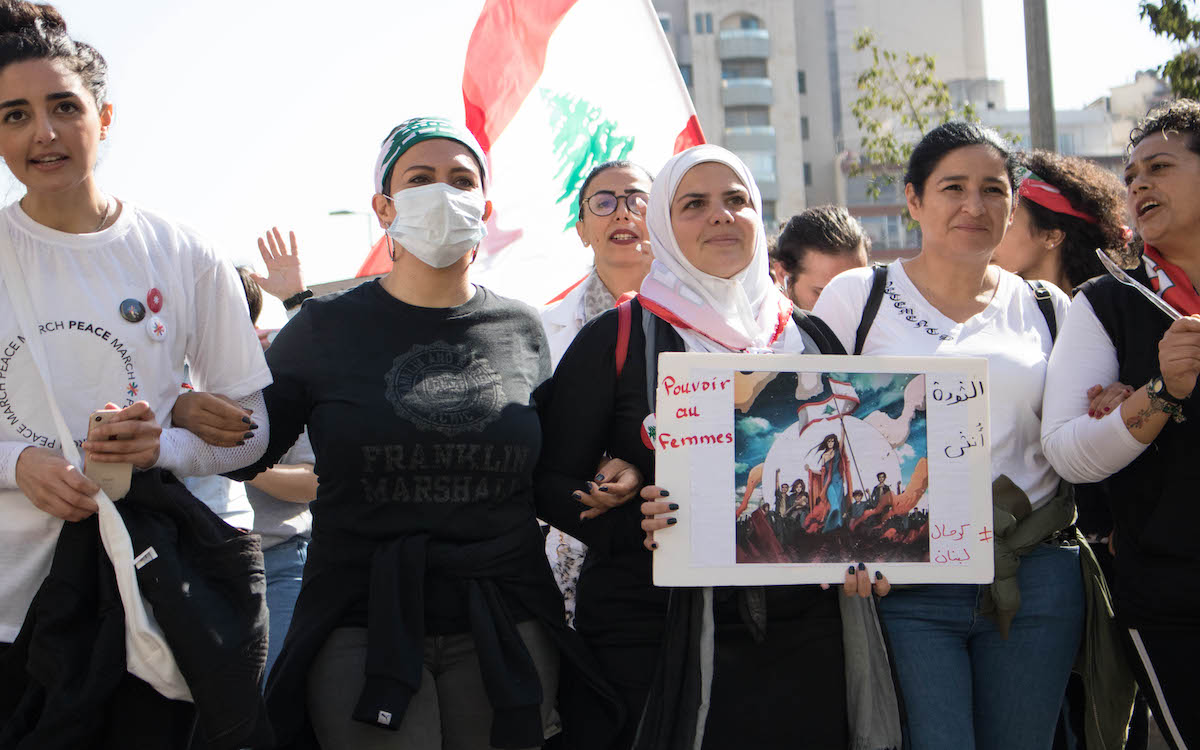
The Minister of Social Affairs, Hector Hajj, called on the UN to reevaluate its priorities in Lebanon, according to a video posted by Megaphone that depicted the minister taking a controversial stance against women’s rights.
“Is the priority in Lebanon, with all due respect, to improve women’s participation in political work? Is this how the situation in Lebanon will be solved? Is this their priority today? This is one of the goals but is this a priority? To stop child marriage and reduce childbirth among minors. Are these priorities to solve the crisis?” the minister said in an interview with Al Nahar on February 27.
The video was criticized for appearing to undervalue the importance of women’s rights, which have been in decline as the crisis worsens, and for underestimating the phenomenon of child marriage, which remains an ongoing problem.
Why this matters, the oppression of women in Lebanon remains as prevalent as ever. Lebanese women are deprived of their rights by personal status laws that favor men in key issues such as divorce and custody over children.
According to women’s rights groups, domestic violence in the country has skyrocketed since the crisis began in 2019. A total of nine women were killed in domestic violence crimes between January and October of last year, while 18 were killed in 2021, according to the internal security forces.
While the Lebanese state issued law no. 293 to protect women and family members from domestic violence, it still falls short in many ways.
According to Human Rights Watch, the law ignores many forms of violence that may fall under the radar, such as rape.
Additionally, the economic crisis has prevented many women from having a stable source of income, forcing them to put up with the abuse. The shelters designed to assist women and their kids in temporarily escaping abusive husbands are currently full.
Moreover, in recent years, child marriage has been on the rise again, with parents seeking as little as $50 to $100 as dowries for teenage girls as a matter of survival.
In general, the state has long ignored issues relating to women’s rights, and the majority of initiatives come from non-governmental organizations that are overburdened with cases to handle.
The minister has issued a statement clarifying his stance, saying that he “supports women’s participation in politics, but where should we prioritize it? Isn’t combating poverty a more pressing issue than ending child marriage?”
“Fixing child marriage requires fixing poverty,” he added.
Although there is some truth to the latter, the Lebanese government has not demonstrated any desire to make changes. Instead, it places all of the onus on NGOs and the United Nations programs to come up with solutions to a wide range of problems, from the financial crisis to the widespread poverty in the nation.
In conclusion, it should not come as a surprise that the Lebanese government does not prioritize women. After being unable to solve its monetary crisis for over three years, elect a president and form a government, the Lebanese state has virtually abandoned any and all responsibilities. In this sense, women and other oppressed groups will continue to be treated as second-class citizens in the foreseeable future.
Dana Hourany is a multimedia journalist with @NOW_leb. She is on Instagram @danahourany and Twitter @danahourany.








